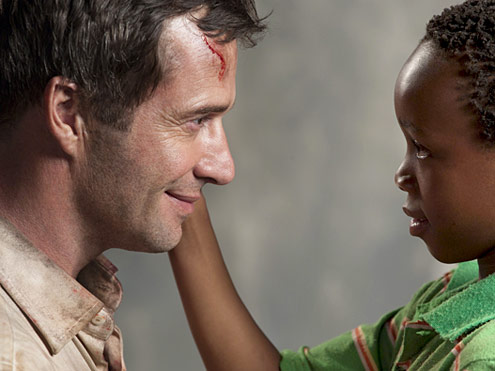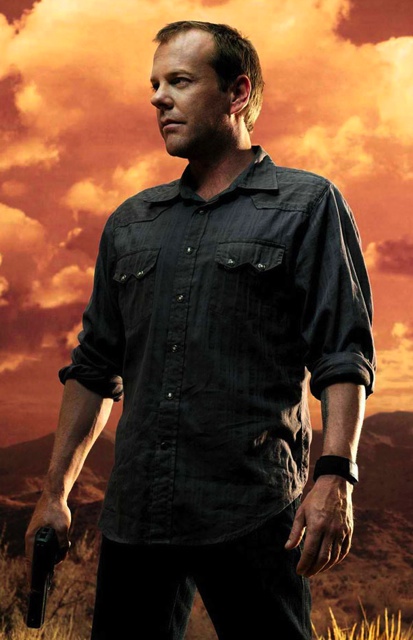
There's an interesting story about the broadcast networks' disastrous ratings for summer originals in Jamie Hibberd's smart Hollywood Reporter blog The Live Feed.
Hibberd quotes a network exec bemoaning the "costs" of this year's little-watched originals, meaning the money paid to produce even stop-gap reality shows. But it strikes me that the real "cost" to which the networks should be paying attention is the psychological one they've inflicted on themselves by giving every indication to viewers that their driving concern is money, not quality, and not even entertainment value.
Look, nobody expects the networks to present the likes of Mad Men three times a night or even three times a week. Even AMC, despite all the buzz, isn't getting that big an audience for such high-minded fare. But that show is unique, and it delivers something bigger than ratings to the channel that presents it. Mad Men is an impressive exhibit of its own voice and its own style, as are most of cable's big-ticket items. You can feel the buoyancy oozing out of even something as inconsequential as USA's Burn Notice. That spy romp makes no pretense to being Emmy bait, but it's delivered with flair, confidence and an obvious eagerness to satisfy the viewer. It feels like a show made to please us, not some budgetary cost center.
In contrast, nearly everything on the broadcast networks this summer feels cynically calculated somehow. Like, here's our seeeerious drama (The Philanthropist, pictured above). Here's our "quirky" procedural (The Listener). Here's our celebrity wallow (I'm a Celebrity, Get Me Out of Here). Here's our ordinary-folks competition (There Goes the Neighborhood). Here's our cheesy exercise in public humiliation (Wipeout). Here's our international coproduction "epic" that's meant to look fancy but actually reflects accounting advantages (Merlin).

Whereas something like
Mad Men fairly screams to get out of its writer's psyche. And something like
Burn Notice just wants to strut what juicy fun TV can be. There's a level of audience understanding and especially showmanship there -- or in
True Blood or
Rescue Me or
Leverage or
Nurse Jackie or even
Army Wives-- that the networks no longer seem very interested in.
That's the "cost" of cost-cutting being such a primary concern. You gotta give a little to get a little, and the networks are now in the take-it-back business of shrinking both expenditures and expectations. It's as if entertaining us is not worth the money and effort. And viewers can feel that, even if it's only subliminally. Cable channels are giving us their all, while the networks are giving us the shaft.
Used to be, critics would praise a strong effort on cable by saying, wow, The Sopranos feels as big as a network show! Now, we see something like House on a network and think, man, that's as interesting as a cable show.
This is what the broadcast networks' cost-cutting has cost them -- that sense of specialness, creativity, connection with the audience. It's always been true, but it's transparently clear now, that network viewers are merely a marketing target and shows are just the stuff to fill time between commercials. The first half of the term "show business" today feels like an afterthought for the networks, which have been overtaken by the kind of middle-management risk aversion that's helped kill American innovation in so many industries.
Cable is just as commercially driven, of course, even on channels like HBO that don't carry ads but still must please subscribers. It's just that cable has been No. 2 to the long-dominant networks, so they've had to try harder, and it shows. Even their promos feel fresher. They've thrown themselves into customer service, at the same time the networks have learned to lean on bean-counting.

The saving grace in this equation historically has been that when a specific network's ratings fell truly precipitously, they'd be forced to throw caution to the winds and gamble big to get back into the game. That meant trying things as crazy as, gasp, adult drama, like
Hill Street Blues or
NYPD Blue. Or smarter sitcoms, like
The Cosby Show or
Everybody Loves Raymond. Or the wildly fresh satiric animation of
The Simpsons. Even the cinematic style of
CSI or
24, the non-linear storytelling of
Lost, the unscripted "reality" of a
Survivor or
American Idol.
None of these shows were me-too efforts to ape previous hits. They were hail-Mary passes that proved to be game-changers, raising ratings for the presenting network and upping the ante for the medium in general.
That's what all the broadcast networks need to throw these days, and what they're so reluctant to uncork. They think there's too much to lose. But of course they're losing it anyway, thanks to me-too duplication and butt-covering trepidation. I'd like to think this sorry summer of '09 might be the turning point, the low ebb that shows the networks how desperately they need to focus as much on viewer entertainment as bottom-line accounting.
But the quote in Hibberd's piece tells me they still don't have a clue what the true cost of cost-conscious decisions can be.